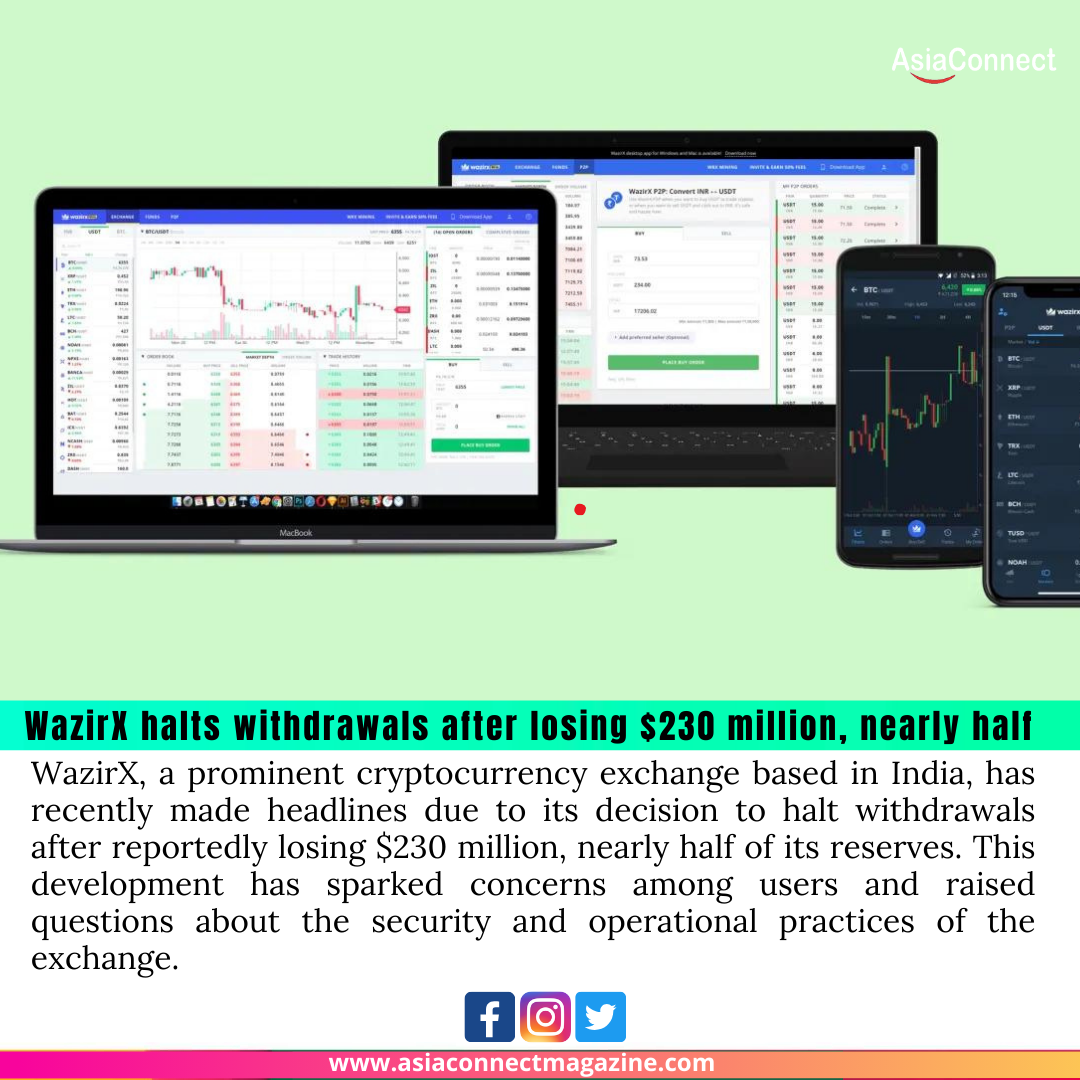WazirX, a prominent cryptocurrency exchange based in India, has recently made headlines due to its decision to halt withdrawals after reportedly losing $230 million, nearly half of its reserves. This development has sparked concerns among users and raised questions about the security and operational practices of the exchange.
Founded in 2018, WazirX quickly gained traction in India’s burgeoning cryptocurrency market, offering a platform for users to trade a variety of digital assets. The exchange’s popularity surged amid growing interest in cryptocurrencies and blockchain technology, driven by factors such as regulatory clarity and increasing adoption among retail investors.
However, the recent revelation of a significant loss has cast a shadow over WazirX’s operations and reliability. The exchange attributed the loss to market fluctuations and the impact of recent regulatory measures, which have tightened scrutiny over cryptocurrency transactions in several jurisdictions, including India.
Cryptocurrency exchanges operate under intense scrutiny due to the volatile nature of digital assets and the inherent risks associated with storing large sums of cryptocurrencies. Security breaches, hacking incidents, and operational missteps can severely impact user trust and the financial stability of exchanges.
For WazirX, the decision to suspend withdrawals underscores the challenges it faces in managing its liquidity and maintaining transparency amidst market turbulence. Users have expressed frustration and concern over the abrupt halt in withdrawals, highlighting the need for robust risk management and communication strategies from exchanges.
The $230 million loss represents a substantial portion of WazirX’s reserves, prompting questions about the exchange’s risk management practices and financial health. In response to user inquiries and media scrutiny, WazirX has pledged to address the situation transparently and work towards resolving withdrawal issues in a timely manner.
The incident has also reignited debates about the regulation of cryptocurrency exchanges and investor protection measures. As governments worldwide grapple with the regulatory frameworks for cryptocurrencies, exchanges like WazirX are increasingly under pressure to comply with stringent reporting requirements and security standards.
In India, where the regulatory landscape for cryptocurrencies remains uncertain, incidents involving cryptocurrency exchanges can influence public perception and regulatory decisions. The Reserve Bank of India (RBI) and other regulatory authorities have been cautious in their approach towards cryptocurrencies, citing concerns over money laundering, consumer protection, and financial stability.
Despite these challenges, cryptocurrencies continue to attract interest from investors seeking alternative investment opportunities and technological innovations. The global cryptocurrency market has experienced rapid growth in recent years, driven by factors such as institutional adoption, blockchain advancements, and the rise of decentralized finance (DeFi) platforms.
Looking ahead, WazirX and other cryptocurrency exchanges will need to navigate a complex regulatory environment while enhancing security measures and risk management protocols. Building trust and credibility among users and stakeholders will be essential for maintaining operational resilience and sustainability in the long term.
In conclusion, WazirX’s decision to halt withdrawals following a significant loss of $230 million highlights the vulnerabilities and challenges faced by cryptocurrency exchanges in a dynamic and evolving market environment. The incident underscores the importance of robust risk management, transparency, and regulatory compliance in safeguarding user assets and maintaining market integrity.
As the cryptocurrency industry continues to mature, exchanges will need to prioritize security, accountability, and regulatory adherence to mitigate risks and foster investor confidence. The outcome of WazirX’s efforts to address the recent setback will likely influence industry practices and regulatory





